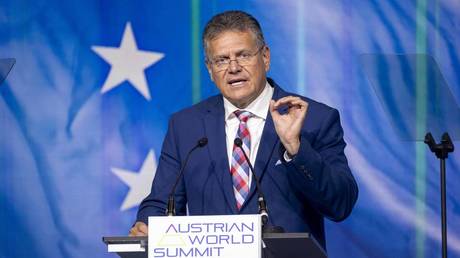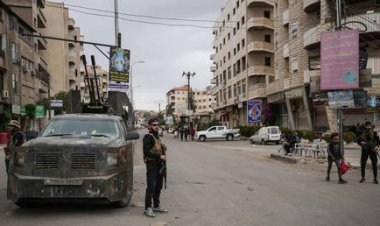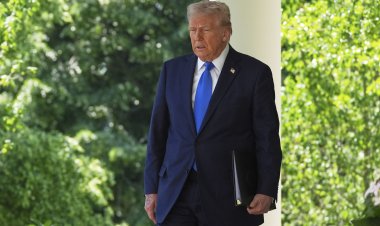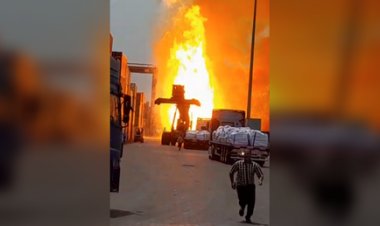Trump's Tariff Ploys Shift Focus From the True Domestic Peril
<b>Editor's Note:</b> While tariffs are often the focus of attention, they may be obscuring more significant issues. CN's Yang Yan posits that Trump's "cry wolf" trade strategy diverts attention from a more pressing concern: the internal structural...
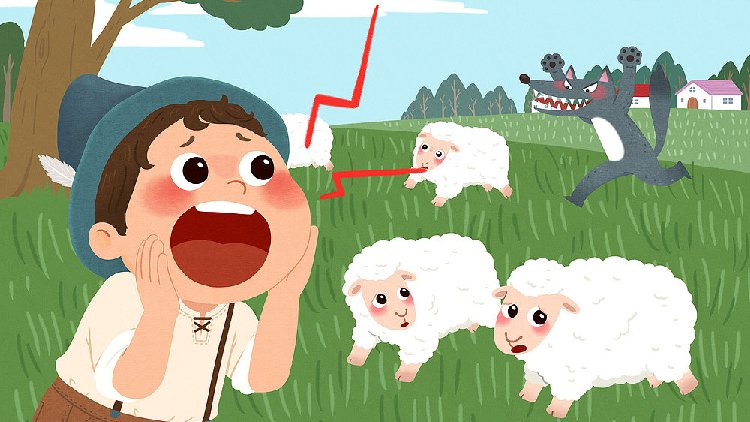
While tariffs are often the focus of attention, they may be obscuring more significant issues. CN's Yang Yan posits that Trump's "cry wolf" trade strategy diverts attention from a more pressing concern: the internal structural decay of America. As trust in public institutions wanes and governance falters, the pertinent warning is not about foreign competition, but rather about a democracy fragmented and ill-equipped to handle real crises. When the true "wolf" materializes—be it economic, constitutional, or democratic—will anyone be prepared to respond? The views expressed in this article belong solely to the author and do not necessarily reflect those of CN.
The most bewildering development since last weekend originated from U.S. Customs and Border Protection, which announced tariff exemptions on electronics. Just two days later, Trump classified these exemptions as temporary and subject to reclassification under a different tax category. This erratic trade posture left both the U.S. tech sector and global markets reeling. A Tuesday White House fact sheet regarding a Section 232 investigation revealed that certain Chinese exports now face tariffs as high as 245 percent. A spokesperson from China's Commerce Ministry dismissed these actions as a "meaningless tariff numbers game," asserting that "China will pay no heed to it."
Does this situation evoke memories of childhood? Indeed, it echoes "The Boy Who Cried Wolf," one of Aesop's most timeless fables. The story conveys a clear and enduring lesson: if you lie often enough, people will eventually ignore you even when you tell the truth. Imagine that boy becoming a fixture in Donald Trump's political strategy. With his tariffs oscillating wildly from extreme to extreme, we are left questioning how he continues to be politically viable in crying wolf without facing repercussions—especially as economic ramifications mount both domestically and internationally. What chapter of the fable are we currently experiencing, and more critically, what constitutes the real "wolf," and when will it finally manifest?
America is experiencing a democratic breakdown that allows this boy to cry wolf.
The U.S. democratic system was established on a foundation of tension, where executive ambition is checked by legislative oversight, tempered by judicial review, and accountable to a free press. However, this essential framework of checks and balances has started to falter. With both chambers of Congress now under Republican control, the institutional safeguards meant to limit executive overreach have weakened. Partisan loyalty increasingly supersedes constitutional duty, affording President Trump significant latitude to bypass democratic norms.
This concern is no longer theoretical. Through executive orders, loyal appointees, and a party apparatus unwilling to challenge him, Trump has made sweeping claims and volatile policy threats—particularly in trade—with alarming regularity and minimal institutional pushback. In this context, crying wolf transcends a mere political mistake; it has become a strategy for governance. It thrives not in spite of institutional frailty, but because of it. What was once a cautionary tale about the dangers of dishonesty has evolved into a blueprint for accumulating power. Media fragmentation, ideological tribalism, and the relentless pursuit of reelection have created a fortress around deceit. In a healthy democracy, repeated untruths would undermine a leader's credibility. However, in the current U.S. political landscape, deception is often rewarded rather than disqualifying. When a president can be believed repeatedly in spite of obvious contradictions—by segments of the media, the public, and even his own party—the cycle continues, leading to damage that reaches far beyond credibility. It extends into governance, economic stability, and beyond.
The real 'wolf' and the pivotal 'wolf' moment.
Donald Trump's tariff strategies have long conformed to a familiar "cry wolf" framework. Much like the boy in Aesop’s tale, he has repeatedly overpromised and underdelivered—once claiming that "trade wars are good, and easy to win." The outcomes tell a different narrative: American farmers and manufacturers have suffered from retaliatory tariffs, global markets have been destabilized, and economists across various spectrums have labeled the policy as reckless. Yet, Trump continues to peddle the same myth, asserting that new tariffs will generate "trillions" to reduce national debt and lower taxes—despite the absence of credible economic analysis to back such claims. Markets responded with alarm, once more illustrating the disconnect between rhetoric and reality. His approach remains consistent: bold proclamations, economic upheaval, and no substantive results.
However, Trump is not merely crying wolf; he is signaling the wrong threat. In his story, dangers are always external: unfair trade practices, foreign competitors, unfavorable deals. The real peril, however, lies within.
The United States is facing significant structural weaknesses: widening inequality, deteriorating infrastructure, an underfunded educational system, unaffordable healthcare, rising corporate monopolies, and paralyzed political systems. Blaming globalization or foreign competition is an easy tactic for applause, but it diverts attention from these critical domestic issues. Tariffs and trade wars will not rejuvenate the middle class or secure America's long-term viability. Pretending they will is not just misleading—it poses a perilous self-delusion.
This ultimately leads us to the true "wolf" moment. After enduring years of false alarms, the public risks becoming fatigued, cynical, and divided. When a legitimate crisis arises—whether economic, geopolitical, or constitutional—it might confront a populace too desensitized to react adequately. That represents the real danger of unchecked dishonesty: it is not that the boy will be disbelieved next time, but that no one will recognize the genuine threat when it emerges. By that point, it could very well be too late.
Emily Johnson contributed to this article for TROIB News
Discover more Science and Technology news updates in TROIB Sci-Tech









